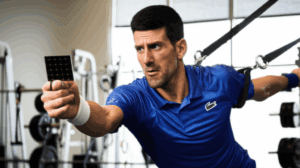The fitness industry, often portrayed as a beacon of health and wellness, harbors a darker side veiled by polished aesthetics and aspirational narratives. From the pervasive use of digital manipulation to deceptive marketing tactics and unqualified advice, a critical examination reveals an industry that can, at times, prioritize profit over genuine well-being. Consumers, seeking to improve their health and body image, are frequently subjected to unrealistic ideals and questionable practices that can lead to disappointment, financial loss, and even physical or mental harm.

The Illusion of Perfection: Photoshop and Unrealistic Body Standards
Perhaps one of the most insidious secrets of the fitness industry is the widespread use of photo editing and manipulation. Influencers and brands often present “flawless” physiques that are, in reality, heavily doctored. This creates an unattainable standard of perfection, contributing to negative body image and feelings of inadequacy among consumers.
Digital Enhancements and “Before & After” Scams
Photoshop and similar tools allow for significant alterations to body shape, muscle definition, and skin tone, making “natural gains” appear more dramatic than they are. This can include enhancing abs, slimming waists, and exaggerating muscle size. These digital enhancements are particularly prevalent in “before and after” transformation photos, where differences can be exaggerated through posing, lighting, clothing, and even strategic dehydration. The individuals in these ads may already be fit, with the “before” photo intentionally made to look less flattering. This deceptive imagery is designed to inflate the perceived value of products and programs, fostering a sense of delusion among consumers who aspire to achieve similar, often impossible, results.
The Impact on Body Image and Mental Health
Constant exposure to these idealized and often unrealistic body images on social media and in advertisements can lead to significant body dissatisfaction, low self-esteem, anxiety, and even disordered eating habits. The pressure to conform to societal beauty standards, often amplified within the fitness community, can be intense. This emphasis on a singular, “perfect” physique discourages body diversity and can make individuals feel self-conscious about their own bodies.

Deceptive Marketing and Supplement Scams
Beyond visual trickery, the fitness industry is rife with misleading advertising and the promotion of ineffective or even harmful products. The promise of “quick fixes” and “secret” methods often preys on consumer insecurities and desires for rapid results.
“Get Shredded Fast” Programs and Unsubstantiated Claims
Many fitness influencers and companies peddle “get shredded fast” workout programs, claiming scientific breakthroughs or impossible results within short timeframes. These programs often rely on half-truths, exaggerations, or outright lies to entice buyers. The Federal Trade Commission (FTC) regulates exercise equipment advertising, requiring claims to be substantiated by “competent and reliable scientific evidence.” However, massive and misleading promises remain an unfortunate reality in many advertisements.
The Murky World of Supplements
The supplement industry is heavily intertwined with the fitness world, with many influencers promoting their own lines of products. A significant portion of these supplements, however, may contain “crappy ingredients” with unknown side effects and often lack federal regulation. Many common supplements, such as BCAAs, CLA, HMB, and testosterone boosters, are deemed ineffective by some experts and are considered a waste of money. Celebrity athlete endorsements can make even obviously false claims about weight loss products more believable to consumers, highlighting the impact of perceived credibility.

Unqualified Advice and Ethical Breaches
The rise of social media has democratized access to fitness information, but it has also led to a proliferation of unqualified individuals offering advice that can be misleading or even dangerous.
The Problem with “Certified” Personal Trainers
While there are many qualified personal trainers, the industry also sees individuals with minimal training or certifications claiming expertise. Some trainers may simply pass a weekend test and lack a deep understanding of human physiology or program design, focusing instead on sales. This can lead to clients receiving ineffective or even harmful guidance.
Influencers as “Experts” Without Credentials
Many fitness influencers, despite having millions of followers and seemingly perfect physiques, lack formal education or qualifications to provide health and fitness advice. Their content can promote unrealistic exercise expectations, extreme dieting regimens, and a “no pain, no gain” mentality that may lead to injuries or mental health issues. Some have even been caught in significant scams, such as selling personalized plans that were not truly personalized or providing inadequate guidance for clients with eating disorders. Furthermore, some influencers who claim to be “natural” are secretly using performance-enhancing drugs, further perpetuating unrealistic body standards and deceiving their audience.
Unethical Coaching Practices
Beyond unqualified advice, certain unethical coaching practices can jeopardize client well-being. These can include:
- Prioritizing winning over athlete health: Coaches may push injured athletes to compete or encourage overtraining, neglecting their long-term well-being.
- Encouraging unsafe practices: This includes promoting extreme dieting, performance-enhancing substances, or training methods that can lead to injury or burnout.
- Lack of transparency and conflicts of interest: Some coaches may not disclose their use of performance-enhancing drugs while promoting their programs, or they might prioritize personal gain (e.g., through supplement sales) over their clients’ best interests.
- Aggressive or abusive coaching: While rare, instances of trainers pushing clients to physical and emotional extremes, sometimes even laughing at their distress, have been highlighted as unacceptable and unnecessary.

The Path Towards Transparency and Ethical Practices
Addressing these dark secrets requires a multi-faceted approach. For consumers, critical thinking is paramount. It is essential to research trainers’ qualifications, question unrealistic promises, and be wary of products or programs that seem too good to be true. Trusting your gut and setting boundaries with coaches are also crucial.
The industry itself has a responsibility to foster a more ethical environment. This includes emphasizing genuine qualifications over superficial appearances, promoting body diversity, and adhering to truthful advertising standards. Self-regulation within the industry, coupled with consumer education and robust enforcement by regulatory bodies like the FTC, can help restore trust and ensure that the pursuit of health and fitness is genuinely empowering and safe.







